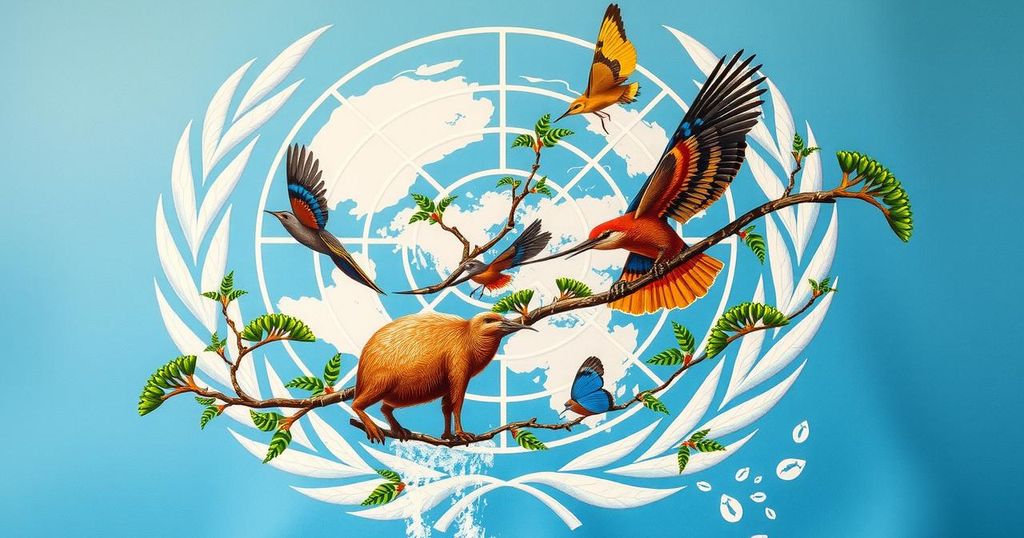This article discusses the vital intersection of climate action, traditional knowledge, and innovative solutions in the face of the climate crisis. It highlights the role of indigenous perspectives in environmental sustainability, explores the potential of floating mangroves in Fiji, addresses the impacts of desertification on youth, and examines Nationally Determined Contributions as frameworks for national climate strategies.
The ongoing climate crisis presents profound challenges and opportunities for the preservation of life and the environment. This article highlights innovative approaches to environmental sustainability, such as the testing of floating mangroves in Fiji, which could offer significant ecological benefits by expanding the habitat range of these vital trees. In addition, a pivotal figure from an indigenous community in Ecuador shares wisdom and insights drawn from his spiritual experiences in the Amazon rainforest, emphasizing the importance of traditional knowledge in contemporary environmental discussions. Furthermore, the issue of desertification affects approximately one billion people under the age of 25 who rely on natural resources for their livelihoods, making it imperative to take meaningful action to combat land degradation. The article will also examine the role of Nationally Determined Contributions (NDCs) as strategic frameworks for countries to adapt to and mitigate climate change impacts, reinforcing global commitments under the Paris Agreement. In light of these multifaceted challenges, the interdependence between humanity and the natural world is underscored, calling for urgent climate action and innovative solutions to preserve both life and nature.
The climate crisis is a pressing global concern that threatens both ecological systems and human livelihoods. Indigenous communities play a vital role in environmental stewardship, with their traditional practices and accumulated knowledge contributing to sustainable management of natural resources. Innovative projects, such as floating mangroves, signify potential breakthroughs in addressing climate challenges through adaptive ecological engineering. Additionally, the escalating threat of desertification underscores the necessity for young populations to protect and manage the land on which they depend. The Paris Agreement, through the establishment of Nationally Determined Contributions, requires countries to outline their strategies for reducing greenhouse gas emissions and adapting to climate impacts, thereby fostering international cooperation and accountability.
In conclusion, addressing the climate crisis requires a multifaceted approach that encompasses traditional knowledge, innovative ecological solutions, and robust national commitments. The insights from indigenous leaders and the exploration of floating mangroves serve as vital reminders of the need for sustainable practices. Additionally, the urgency of combating desertification and the implementation of NDCs are crucial for safeguarding the future of vulnerable populations and the planet. Moving forward, a collaborative effort is essential to harmonize human activities with the health of our ecosystems, ensuring a resilient future for generations to come.
Original Source: www.un.org







